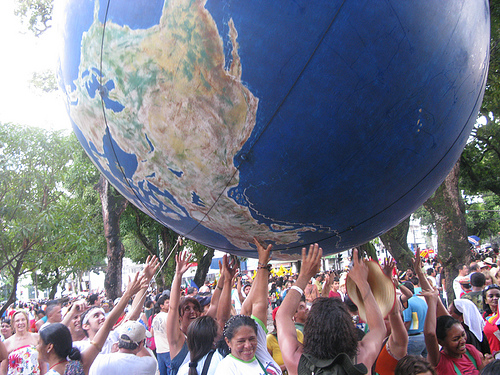 David Hernández-Palmar, a young Venezuelan man from the Wayuu Indigenous community, will be in New York City this Saturday to help present a documentary at the 30th Annual Native American Film and Video Festival.
David Hernández-Palmar, a young Venezuelan man from the Wayuu Indigenous community, will be in New York City this Saturday to help present a documentary at the 30th Annual Native American Film and Video Festival.
“Owners of the Water: Conflict and Collaboration over Rivers” was created by Hernández-Palmar together with Caimi Waiassé (a Brazilian Xavante man) and U.S. Anthropologist Laura R. Graham. It chronicles an international campaign to protect Rio das Mortes River Basin in Brazil, a vital resource for the Xavante community that was threatened by soya production and related deforestation. The Xavante blocked a national highway to demand the protection of the basin.
To help tell the story of the Xavante’s struggle, Venezuela’s David Hernández-Palmar lent his talents as an up-and-coming documentarian. For more information about this and other films at the Native American Film and Video Festival, click here.



 Thanks to the
Thanks to the  Venezuela’s new Minister of Telecommunications, Socorro Hernández, pledged to support the expansion of an innovative project that is putting Indigenous-produced content onto public radio in Venezuela. The Bolivarian News Agency (ABN) reports today that Hernández responded to a request for assistance from The Ministry of Indigenous Affairs, which is headed by Nicia Maldonado. The program in question is a co-project with
Venezuela’s new Minister of Telecommunications, Socorro Hernández, pledged to support the expansion of an innovative project that is putting Indigenous-produced content onto public radio in Venezuela. The Bolivarian News Agency (ABN) reports today that Hernández responded to a request for assistance from The Ministry of Indigenous Affairs, which is headed by Nicia Maldonado. The program in question is a co-project with 
